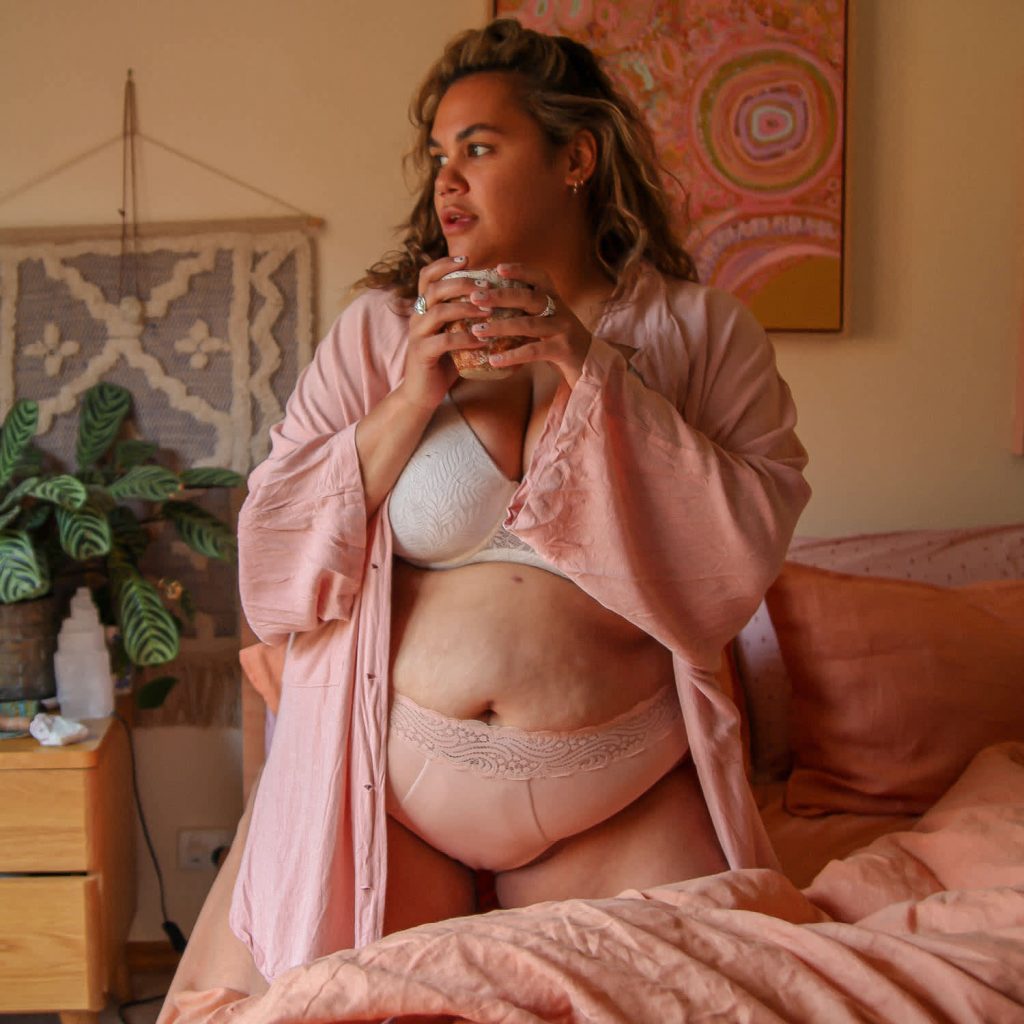Welcome to POPSUGAR Uninhibited, a space where anyone with a period can come for advice, recommendations and support. Here, we’ll tackle topics like PMS, sustainability, post-partum periods and bring you first-person experiences in our period diaries. We also want to raise awareness around period poverty, with the aim to ignite change with the help of our launch partner Modibodi and charity partner Share the Dignity. You can find all of the stories here.
We know that feeling; it’s a few days since your period was due, but you’ve got sore boobs and you feel kinda nauseous. Don’t worry; we’ve all been there.
But there are actually quite a few reasons why your period might be late, besides pregnancy. If you know you’re not pregnant, you might be wondering why your period might be late, and there are many factors that come into play. The average healthy menstrual cycle can range between 21 and 35 days, so the first thing to do is understand and track your cycle, in order to understand what is normal for you.
Below, here are some reasons why your period may be late or irregular.
You Might Be Stressed
Stress impacts everything, including your hormones. Feelings of stress and/or anxiety can through your hormones off balance, which can alter your menstruation cycle, which could make your period late. Stress can affect the part of your brain that is responsible for regulating your period — the hypothalamus — which can lead to illness or sudden weight gain or loss, all of which can impact your cycle.
What you can do: if you think stress is the culprit, try implementing some relaxation techniques into your daily life, such as meditation, yoga, a nice long bath (with bubbles, of course) or get outside into nature. You can also make some lifestyle changes, like putting aside an hour a day for some self-care, eating more consciously with a health-focus and even allow yourself more time to see friends/do things you love.
Certain Types of Birth Control
Most types of birth control impact your cycle. Some take your period away all together, some minimise symptoms and some create irregularity within your menstrual cycle. Birth control pills and hormonal IUDs contain progestin, which prevent your ovaries from releasing eggs and also thin the lining of your uterus. Everyone is different, but it can take time for your body to regulate itself when you first start using birth control or when you first come off it.
What you can do: either way, if you’re on birth control, it can be quite normal for your period to be irregular. If the irregularity bothers you, it could be beneficial to speak to your doctor about other forms of contraception you can try.
Chronic Disease
Chronic diseases such as celiac disease, endometriosis and diabetes can affect your menstrual cycle, due to changes in your blood sugar or inflammation of your intestines or uterus. These direct symptoms of chronic diseases can cause late, or even missed periods. They can also make your period extremely painful and result in other unpleasant symptoms like diarrhoea, bloating and extreme stomach cramps.
What to do: in the cases of chronic disease, it depends on which you suffer from as you what you can do. With celiac disease, it’s important to stick to a strict gluten-free diet, to minimise complications. Endometriosis sometimes requires a surgery (called a Laparoscopy), can be treated with different forms of contraception or just closely monitored and managed if it’s not too serious. When it comes to diabetes, each case of diabetes is different, so it’s best to speak to a doctor.
Polycystic Ovary Syndrome (PCOS)
PCOS is a condition that causes your body to produce more of the male hormone, androgen, which results in cysts forming on your ovaries due to the hormonal imbalance. This can make ovulation irregular or stop it completely. The common symptoms of PCOS are: irregular periods, trouble getting pregnant, aggressive hair growth (on your face, back or bottom), weight gain, acne or super oily skin and thinning hair or hair loss. You’ll also experience quite severe cramps.
What you can do: if you think these symptoms apply to you, it’s best to speak to a doctor. There are many different ways of dealing with PCOS, but it’s different for each individual.
Always seek the guidance of your doctor or other qualified healthcare professional with any questions you may have regarding your health or a medical condition.

